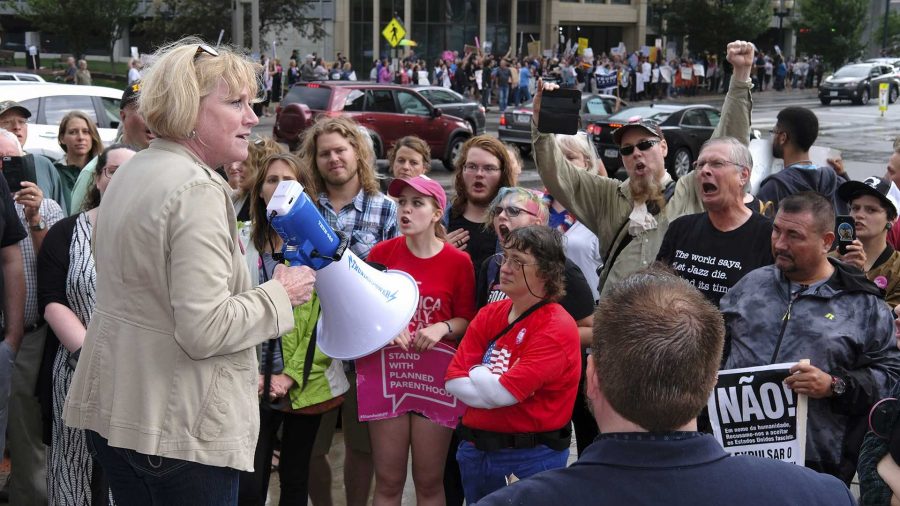Under a recent law, 550 of state’s 1,203 collective-bargaining units up for potential recertification elections in September and October.
By Isabella Senno
isabella-senno@uiowa.edu
Voting ballots will be mailed to 14 Iowa school districts and community colleges on Sept. 12, marking the beginning of an election avalanche. These ballots, and thousands of others, will determine which collective-bargaining units remain intact at the end of October.
Mike Cormack, the chair of the Iowa Public Employment Relations Board, said around 550 out of the state’s 1,203 bargaining units are up for potential elections in the next two months under new regulations put in place by the Legislature and the governor earlier this year.
These elections will affect over 37,000 public-sector employees across Iowa, which Cormack said is an unprecedented number of recertification elections. Typically the Iowa PERB oversees about a dozen elections annually.
“The reaction from the employee side of it … has not been positive and that’s understandable, because it’s a new way of doing business, and there’s certainly a lot of uncertainty thrown into the process,” he said.
Under the legislation, a nonvoter is considered a vote against the bargaining unit’s recertification, which means that for a unit to be renewed the majority of all eligible voters in the unit must cast positive votes.
“My take on the upcoming recertification is that it’s fundamentally unfair the way the rules are established,” said Ken Sager, the president of the Iowa Federation of Labor, AFL-CIO. “There’s no elected official in this country that has to hold up to that standard.”
This requirement has also led to legal action. Cases have been filed against the new law by AFSCME and the Iowa State Education Association.
“There is just no other election that has this type of a magnitude that something like that happens,” said Tammy Wawro, the president of the Iowa State Education Association. “We would never have a bond issue passed, we would never have someone elected if all the electorates had to go vote and if they didn’t vote somebody voted against them.”
If the election fails, the bargaining unit would be disbanded, and employees would lose their union rights and be unable to organize for the next two years. This dissolution would be swift and could have drastic, resounding consequences for public-sector employees.
“PERB is telling us that on that date, so on Sept. 26, they will know whether a local bargaining agent has been recertified and they will then say if it is not that the contract is null and void right at that moment on Sept. 26, even though it is signed and supposed to be enforced until August of 2018,” she said. “It means that the leaves that are in there, the start and stop time, the family illness, the bereavement, all the working conditions that are listed in that contract are no longer applicable.”
While Wawro remains optimistic that school employees will vote to reauthorize their union representation, other logistical obstacles may stand in their way, such as a difficult mail system in isolated districts.
“Public workers have voted consistently to organize unions and bargain contracts collectively and now Gov. [Kim] Reynolds and the corporate lobbyists want to change the rules in the middle of the game …” Iowa gubernatorial candidate Cathy Glasson said. “What Gov. Reynolds is doing to working people in our state is not democracy, it’s rigged against the workers and their unions.”



